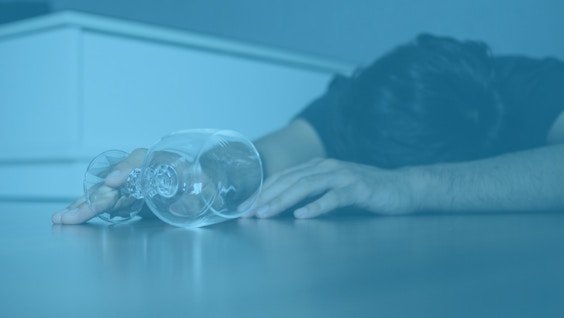I Am Sober is a free app that helps you get some control back in your life.

Medications for Alcohol Cravings
Last Updated: Fri, January 19, 2024Alcohol withdrawal symptoms typically last a few days – at most, a couple weeks – but the real challenge is the ongoing cravings. These happen less frequently the longer you’ve been sober, but when they occur, they can be incredibly powerful. Cravings are one of the leading causes a person relapses, fortunately there are medications for alcohol cravings that are FDA approved. They are Campral, Naltrexone, and Antabuse.
Campral aka Acamprosate
Campral is frequently used to relax the brain and ease the cravings. Additionally, it helps with other withdrawal symptoms such as anxiety, insomnia and even depression.
How acamprosate works is by interacting with two chemicals within the brain that impact nerve cells: glutamate which stimulates the nerve cells and gamma-aminobutyric acid (GABA) which inhibit nerve cells. The acamprosate helps to balance these two chemicals to lessen the desire for alcohol.
For people who have spent a long time drinking (and drinking heavily at that), these two chemicals (GABA and glutamate) are unbalanced. Addiction rewires many of the brain’s functions, including deliberate and impulsive behaviors as well as short-term and long-term rewards systems. These nerve cells are more evidence of that. Acamprosate helps to level these systems out for recovering alcoholics.
That said, one of the drawbacks (for some people) is Campral usually comes in pill form and needs to be taken three times a day to manage their cravings. Some doctors will prescribe Campral with Naltrexone.
Naltrexone aka ReVia
Naltrexone is one of the more controversial medications for alcohol cravings because it can be prescribed to people who have not given up drinking entirely and are not expecting to. Naltrexone impacts the short-term rewards loop by blocking the brain’s perception of “pleasure” when drinking. The fundamental idea behind Naltrexone is not to get someone to stop drinking or caving in to cravings, but to uncouple the link between alcohol and pleasure.
Naltrexone is usually prescribed to those who have been heavy drinkers for a very long time, as a way to wean them off of alcohol. In the best case scenario, Naltrexone helps people suffering from alcohol use disorder to recognize the physical negatives from drinking: nausea, headaches, bloating, anxiety, etc. When someone does not receive that short term reward feedback, they don’t continue use of alcohol.
Unfortunately, many doctors don’t believe Naltrexone works and have found it doesn’t have the desired effect. That said, it is FDA approved and why many doctors will prescribe it with Campral.
Right now, Naltrexone can be taken in one of two forms: ReVia (a once daily pill) and Vivitrol (a monthly injection).
Antabuse aka Disulfiram
Antabuse is used as an aversion drug. It causes an extremely unpleasant reaction in your body when you consume alcohol, forcing you to get sick almost immediately. Antabuse can cause sweats, shakes, nausea, headaches & vomiting. The idea behind aversion is that it causes a Pavlovian response. The alcohol makes you react negatively to disrupt your rewards system. The drawback is that many people end up associating the negative effect with the drug rather than the alcohol, so they stop taking the drug.
Disulfiram works well for people who are committed to getting sober, but otherwise it offers little for people in recovery. Pain and sickness are not the best motivators for sticking to a new habit. Moreover, Antabuse will not prevent cravings or the myriad withdrawal symptoms from alcohol.
FDA-Unapproved Alcohol Medications
There are two drugs that are not currently FDA-approved, but are being studied. Two of these are showing signs that they lessen the effects of cravings and even the larger symptoms of withdrawal, but they are not yet FDA-approved. Some doctors may still prescribe them (off-label) or have seen popular use in other countries. The two are Topamax & Lioresal.
Topamax aka Topiramate
Topamax, like Campral, impacts GABA and glutamate and has been prescribed for epilepsy in the past. It has helped lessen the effects of alcohol withdrawal as well as cravings.
Lioresal aka Baclofen
This is a drug that’s currently being researched and specifically with people who are suffering from alcoholic cirrhosis. The verdict is still out as to whether it has a positive impact on those in recovery, but it’s developing nonetheless.
Other Treatments for Alcohol Withdrawal
Of the three medications for alcohol cravings, two are heavily dependent on where you’re at in recovery. Both Naltrexone and Antabuse are aversion-based meaning they only really work if you're continuing to drink, which goes against the idea of getting sober.
Naltrexone is still prescribed in conjunction with Campral however because the more work that can go towards rebalancing the chemicals in your brain, the better. However, Antabuse was the first drug approved back in the 1950s and it feels like it's a product of its time.
If you want to get sober, but are struggling to stop, these drugs are most effective when combined with therapy. Medicine can help ease the pain, but it won't cure the disorder. Seek out help for your addiction.
I Am Sober is a free app that helps you get some control back in your life.




